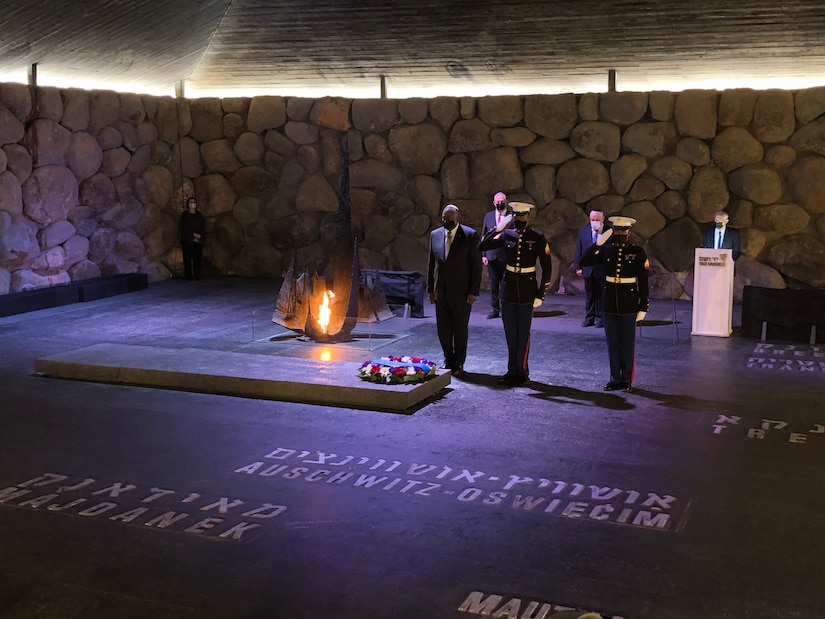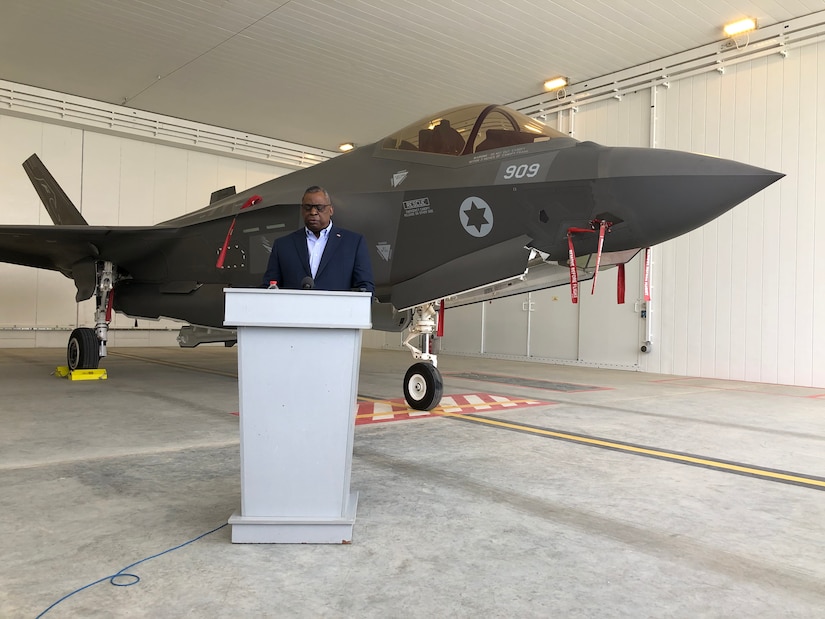April 12, 2021 | , DOD News
Netanyahu said this is an idea that Israelis agree with – regarding the United States as "mishpaha" – the Hebrew word for family.
U.S. support for the State of Israel has been constant since the nation formed in the midst of war in 1948. It has transcended political administrations, with both Republican and Democratic administrations pledging an "ironclad" guarantee to support Israel.

That doesn't mean the relationship between the nations hasn't changed, and both Netanyahu and Austin would like to see the alliance move into its next phase.
"The close and strong ties that we enjoy with Israel are central to regional stability and security in the Middle East, and we both agree that we must continue to work closely together to enhance the U.S. Israel Strategic Partnership," Austin said following meetings at the offices of the Prime Minister. "So we discussed ways to deepen and expand our long-standing defense relationship in the face of regional threats and other security challenges. And I affirmed the department's support for our ongoing diplomatic efforts to normalize relations [among] Israel and Arab and Muslim-majority nations."
In the morning, Austin visited Nevatim Airbase, south of Jerusalem. There he saw the Iron Dome anti-missile system along with David's Sling and the Arrow systems. He also saw Israel's ace in the hole – the F-35 Joint Strike Fighter. "The ability to go out and talk to leaders in the Air Force has been very helpful," he said. "It's a chance for me to see for myself how we are meeting our commitment to Israel's [qualitative military edge]."
It is important for Israel and the United States to continue to work together to ensure interoperability between the militaries of the two countries. This is more than simply buying the same equipment: It's understanding how the equipment works in concert with other systems. Clear communications of ideas and doctrine, as well as on the radio, is crucial to success, Austin said.

He noted that Israel is moving into the U.S. Central Command area from the U.S. European Command.
"I think it's really important that we continue to work on a partnership, and we heard some of that today as we talked to leadership," Austin said. "[The Israelis] really have been doing a lot to exercise with Centcom, and with our European Command. It's just really impressive to see how, how much further, we've gotten in terms of interoperability."
For his part, Netanyahu warned of the threat of Iran, which has pledged to eliminate Israel. "Iran continues to support terrorists around the world on five continents, threatening civilians everywhere," the prime minister said. "I will never allow Iran to obtain the nuclear capability to carry out its genocidal goal of eliminating Israel. And Israel will continue to defend itself against Iran's aggression and terrorism."
The United States, too, does not want a nuclear Iran, and Austin said building on these will allow the two nations to advance shared defense priorities and maintain close cooperation. Doing this would go a long way to charting "a path toward enduring peace in this region and advance an open and stable order now and in the years ahead," he said.
Netanyahu went back to the idea of family: "I can say with great confidence that Israel has no greater ally and certainly no greater 'mishpaha' than the United States of America," he said. "And I can say equally, that the United States has no better ally and no better 'mishpaha' than the State of Israel."








No comments:
Post a Comment